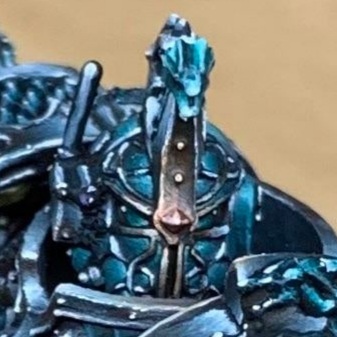I’m an artist, aka unemployed with a hobby.
According to the memes, your in the right place if you want to make it a career.
I work in niche corporate software that basically has me do full-stack programming in addition to a ton of proprietary server configuration. It’s wide as an ocean but deep as a puddle, so it’s really difficult to learn everything but the day-to-day is super chill. Pays by the truckload compared to normal programming jobs, and I probably realistically work ~3 hours per day, most of which is directing my team. Unfortunately there’s basically no overlap in my job skills to my hobby skills/special interests as everything is super proprietary (even most of the programming languages), so I really only do it for the money and not because I like it.
I’d like to do a more Linux-centric or interesting job in the future but I’m not sure if I’ll enjoy it more because ultimately it will still be work and will probably pay much less. As-is I’m brute forcing my way to early retirement in the next handful of years, and I’m not sure if I want to punch out when I hit my number or transition to something more “fun”.
Im currently in uni studying software engineering
I’m currently studying electrical engineering, my dream is to join a space program one day.
Good luck! Are you more on the analog, or digital side of things?
My course is mostly digital, the analogue stuff is taught, but mostly as a historical interest or as an exercise for teaching the mathematics behind the system or components
Analog and I have never gotten along. However, when working in the physical space, having a notional idea of whats going on is invaluable.
Cybersecurity research.
Not really IT, but kind of want to be because the sector I work in is too stressful
Any thoughts on what you want to work in? I’ve got a lot of friends in the same boat but it’s hard to make a realistic plan on how to go about actually switching without needing to go back to college.
Ah, I’m a teacher, and a particularly overworked one
Sorry to hear. I’ve love teaching people things; I don’t think I could ever justify the pay cut and stress I hear about to become a teacher.
Yeah, that’s the rub, isn’t it? Love teaching, but man… That work load
DevOps for an auditing company
I’m currently at university studying game design, specialising in the art side. I’ll probably end up with a dual specialty in concept art and 3d modelling. Good skills for doing furry art on the side.
There are 2 artist I know of that are working on making games. Based on their patreons, they make a decent income.
Very reassuring to hear! I don’t care about being rich, I just want to make enough income to cover the ongoing costs of existing. :D
Currently graduating from my computer science degree, searching for a job in backend. :}
Update: Just got one! Junior dev role. Weeee~
Just saw the update, Congrats.
We got another one in the system. >:}
Thank you!
Software developer here, doing low-ish level C++ stuff.
I’m an apprentice bench jeweler!
Sounds interesting. All I have in response to that is I sometimes like watching wristwatch revival on youtube. I feel like I could get some relaxation out of that.
My grandpa was a proper watchmaker, he started the business 50 years ago this year actually!
Cool! Here’s to 50 more.
Watchmaking is the kind of thing I can’t decide if I would like or despise. The way Marshall presents it, there is a lot of precision and focus needed, but after a while I would think a service is a service and just becomes routine.
The appealing thing to me about watch repair is the intrinsic order of it all. Every watch (or clock) is a precision instrument with exactly ONE correct way to function. Not a lot of room for subjectivity on the part of the customer or the one doing the repair!
I can see the appeal. It doesn’t hurt the internals are so cool looking too. I work with electronics and code. There is usually only correct operation, but often many different ways to get there; and many of the problems are self inflicted and usually fun to hunt down.
A little late to the post but I’m an apprentice electrician. Inside wireman so mostly commercial, office, and industrial buildings.
Never too late. Is that mostly installation or repair, or are they the same?
Most companies in our union do both. The two main groups of work are Service and New Construction. Repair would fall under service work as well as installing things in finished buildings, preventative maintenance, etc. Right now I’m doing new construction. I hope to get to do service work at some point, though we always have a lot of new construction in this area. I get assigned to a new company every year while I’m an apprentice so there is a chance I’ll get to.
Currently in my last year of a CS degree. As a hobby I’ve been focusing on programming procedural generation stuff for games and recently I’ve been getting more into working with electronics hoping to one day make an automated sorting system for my Lego collection.
Sounds like your hobby could turn into something more. Electronics can have some really unintuitive debug issues. Your idea for a lego sorter reminds me of parts Shane’s (Stuff Made Here) puzzle robot. https://www.youtube.com/watch?v=Gu_1S77XkiM
Yeah, I’m still new to all of it. My plan of action is to make a machine that tumbles bricks onto a conveyor and takes pictures of them before cycling them back through. This is to collect a dataset for training a machine vision model. If that doesn’t work out I’ll just have to make it sort the bricks by color as that’s easy enough to do.
The hardest part I’ve encountered so far is trying to learn how to control lots of stepper motors, how to power everything, and of course learning the 3d modelling process so I can mix both Lego and non Lego in the machine’s construction.
I haven’t done any modelling myself, but if I ever start, I’ll probably try openscad. Lego are fairly uniform, so I would wonder if more traditional machine vision techniques would work.
For machine vision, I was thinking of using multiple cameras and then just stitching the images together and using that as the input. That way it gets images of the bricks from multiple angles, which when combined with bright lighting from LED strips should make it easier to identify.
I have basically no experience with any machine vision, I’ve done some edge/color detection once, but my intuition says that sounds like a plan. Because you have a pretty unique feature for each brick, its number of studs and size of cavity on the bottom, you might not need as full a picture of each brick as you might think. That’s pure speculation though. Have fun with the project.









